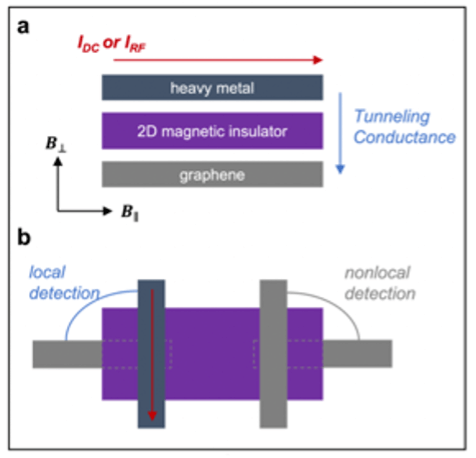Summary
A superconducting quantum interference device (SQUID) is an extremely sensitive magnetic field detector. Microstrip SQUIDs can amplify weak radio frequency (RF) signals, a capability that makes them attractive as a potential alternative to the cryogenic semiconductor-based RF amplifiers that are available commercially, but at a cost of approximately $6,000 each. The challenge of using microstrip SQUIDs has been that they are static sensitive and can be overwhelmed by external noise. By tweaking microstrip SQUID design to achieve the quantum noise limit, and by packaging the technology into a more practical configuration, our team is working to reduce the cost of the SQUID approach by an order of magnitude. We also are working toward a much higher performance amplifier, with voltage noise reduced ten fold.
In the course of our work, we expect to fabricate “user-friendly” SQUIDs – packaging the RF filtering, RF-SQUID, and amplification together – such that a non-specialist could easily run the amplifier with the ease of running a conventional semiconductor amplifier. In addition to producing a practical, high-performance and economical amplifier, we believe that our work will facilitate multiple new quantum readout applications, as well as interesting fundamental physics.
Related Content

Cryo-CMOS to Control and Operate 2D Fault-Tolerant Qubit Network
Summary Large-scale, fault-tolerant quantum computation requires precise and stable control of individual qubits. This project will use complementary metal-oxide-semiconductor (CMOS) technology to provide a cost-effective scalable platform for reliable and high-density control infrastructure for silicon spin qubits. We will use sub-micron CMOS technology to address device and circuit-level challenges and explore the integration of […]
June 14, 2018

Coherent magnon generation, magnon condensation, and quantum spin liquids via spin pumping in 2D magnets
Summary Developing hybrid quantum systems is essential to harnessing the complementary advantages of different quantum technology platforms. This necessitates the successful transfer of quantum information between platforms, which can be achieved, e.g., by harnessing magnons, or spin wave excitations, in magnetic materials. Decoherence due to uncontrolled coupling of qubits to the environment remains a fundamental […]
February 1, 2023

Topological Quantum Computing on Majorana Platform
Full-scale quantum computing will require the capability for error-tolerant quantum information processing.
January 11, 2017

Inverse Photoemission Spectroscopy of Quantum Materials
Summary Quantum materials that exhibit strong electron correlations lead to phenomena, such as superconductivity and topologically protected states, that are important for quantum computation, sensing, and other applications. For example, we may utilize symmetry protected topological states to make qubits that are robust against decoherence, while advances in high temperature superconductors may significantly reduce […]
September 20, 2018

